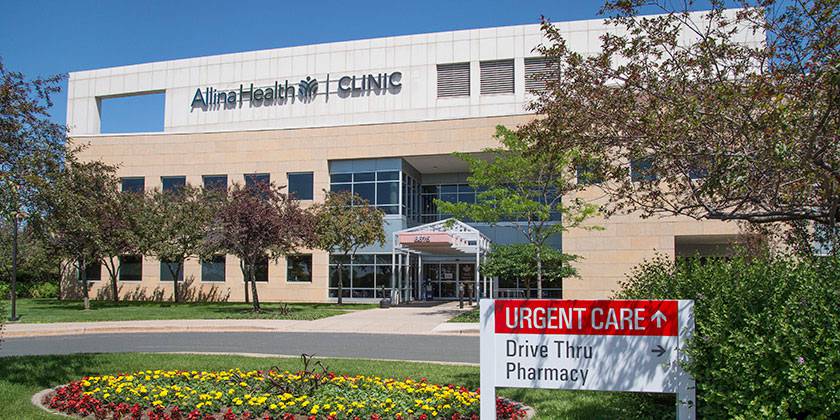Crucial Services Supplied by Clinics Specializing in Urgent Care
Crucial Services Supplied by Clinics Specializing in Urgent Care
Blog Article
The Importance of Urgent Care Centers in Bridging the Gap Between Key Care and Emergency Services
Urgent care facilities have emerged as a crucial component of the healthcare landscape, successfully dealing with the vital requirement for immediate medical attention without turning to emergency situation services. By providing take care of non-life-threatening problems, these facilities aid to alleviate the concern on emergency clinic and improve person accessibility to prompt treatment. Their expanded hours and diverse services deal with an expanding population looking for choices to typical medical care. Nonetheless, the evolving role of urgent treatment centers elevates essential concerns regarding their integration within the more comprehensive healthcare system and the implications for patient results and resource allocation.
Introduction of Urgent Treatment Centers
Immediate treatment centers have ended up being a vital component of the healthcare delivery system, offering available clinical solutions for non-life-threatening problems. These facilities typically operate outside common office hours, offering patients an alternative to emergency rooms and medical care settings. People seeking immediate treatment frequently present with problems such as small injuries, infections, or illnesses that call for prompt focus however do not position a prompt risk to life or limb.
Urgent treatment centers are staffed by a series of health care experts, consisting of doctors, registered nurse professionals, and physician assistants, that are equipped to diagnose and treat different medical problems. They usually feature diagnostic devices such as X-ray makers and laboratory solutions, allowing them to give comprehensive treatment on-site.
The facility of urgent care facilities has been affected by the increasing need for prompt medical solutions in a hectic society, where patients may struggle to protect appointments with main care carriers. As an outcome, these centers intend to reduce blockage in emergency situation departments, enhancing total health care performance. In addition, urgent care facilities often offer as a bridge between medical care and emergency situation solutions, ensuring that individuals obtain ideal treatment tailored to their certain medical needs.

Advantages of Urgent Treatment Solutions
Accessing prompt healthcare is a substantial benefit of immediate care solutions. These facilities give immediate interest for non-life-threatening problems, effectively reducing delay times compared to conventional emergency departments. Clients seeking look after small injuries, illnesses, or immediate wellness issues can obtain therapy without the long hold-ups frequently linked with health center check outs.
Another trick benefit is the extensive hours of operation. Lots of urgent care facilities are open nights and weekend breaks, accommodating patients that may not be able to see their main care carrier throughout basic office hours. This adaptability makes immediate care an accessible choice for those with busy timetables or abrupt health issues.
In addition, immediate care facilities commonly use a large range of solutions, including diagnostic testing, X-rays, and basic research laboratory solutions. This comprehensive strategy enables quick diagnosis and therapy, improving person fulfillment.
Furthermore, urgent treatment centers are usually extra economical than emergency clinic, making them an attractive choice for individuals without insurance coverage or those with high-deductible strategies. Generally, immediate care services play an important function in giving easily accessible, timely, and inexpensive healthcare.
Contrast With Main Treatment
Normally, individuals often consider their choices between immediate care facilities and health care service providers when seeking clinical focus. Both offer important functions in the medical care system, yet they differ dramatically in access, scope, and expense.
Health care providers are usually the first factor of call for clients, concentrating on lasting health administration, precautionary treatment, and chronic disease administration. They provide connection of treatment, fostering a patient-provider partnership that permits for thorough health and wellness analyses and individualized therapy plans. However, arranging a consultation can be time-consuming, commonly requiring days or weeks beforehand.
On the other hand, urgent care facilities offer immediate take care of non-life-threatening conditions that need timely focus, such as small injuries or infections. These facilities usually run outside of typical office hours, fitting individuals who may not have the ability to see their health care company throughout routine company times. Additionally, urgent care is generally a lot more economical than emergency room visits, making it an attractive alternative for those with restricted medical care accessibility.
Ultimately, while immediate treatment facilities and medical care suppliers both add to client health, they accommodate distinctive read this article requirements, making it important for patients to establish which choice finest lines up with their scenarios.
Emergency Situation Solutions Communication
The communication in between immediate care facilities and emergency solutions is a crucial aspect of the medical care landscape, particularly when clients deal with circumstances that may escalate in severity. Urgent care centers work as a bridge in between medical care and emergency situation departments, attending to non-life-threatening conditions that call for prompt attention. This cooperation boosts patient outcomes and maximizes resource allowance within the health care system.
When people present with not deadly but urgent issues, immediate treatment facilities can effectively manage their requirements, relieving blockage in emergency areas. Facilities equipped with analysis capacities can assist in timely recommendations to emergency services when an individual's condition surpasses the scope of immediate care treatment. This smooth interaction assists ensure that patients get the proper degree of care without unnecessary delays.
In addition, reliable communication in between urgent care companies and emergency services is crucial. Sharing client information and treatment histories promotes coordinated care, minimizing the threat of repetitive tests and procedures. As health care remains to advance, the dynamic partnership between urgent care facilities and emergency situation solutions will play an essential role in enhancing person care performance, contentment, and overall health outcomes within the area.
Future of Urgent Treatment Facilities
As health care needs evolve, the future of immediate care centers is positioned to end up being significantly important to the total medical community (Urgent Care). These centers are likely to broaden their duties by incorporating sophisticated technologies, such as telemedicine, expert system, and digital health and wellness document combination. This will certainly boost individual accessibility and simplify treatment control in between immediate treatment, key treatment, and emergency services
Moreover, immediate care facilities are expected to diversify their solution offerings to include preventative care and persistent illness administration. This change will place them as vital components in handling population health, lowering the worry on emergency departments, and dealing with gaps in health care availability.
The expanding trend of value-based care will even more speed up the change of urgent care centers, motivating them to concentrate on individual results and satisfaction. Facilities might also adopt collaborative practice designs, functioning closely with professionals and key treatment service providers to make sure comprehensive individual management.
Verdict
Finally, immediate care facilities offer a crucial feature in the medical care system by supplying immediate access to treatment for non-life-threatening conditions, effectively relieving stress on emergency services. Their extended hours and varied variety of solutions boost patient ease and fulfillment, while likewise making sure suitable treatment delivery. As medical care requires proceed to official site evolve, the duty of urgent treatment facilities will likely come to be progressively considerable, further connecting the void in between health care and emergency situation services.
The establishment of urgent treatment centers has actually been influenced by the raising demand for timely medical solutions in a hectic society, where patients might struggle to secure consultations with primary treatment companies. Additionally, immediate treatment facilities commonly serve as a bridge between main care and emergency services, ensuring that clients receive proper care customized to their specific medical requirements.
Numerous immediate treatment facilities are open evenings and weekends, accommodating individuals that might not visit homepage be able to see their key care service provider throughout standard office hours (Urgent Care). As medical care proceeds to develop, the dynamic connection between urgent treatment centers and emergency situation services will certainly play a pivotal role in enhancing individual care effectiveness, complete satisfaction, and total health outcomes within the community

Report this page